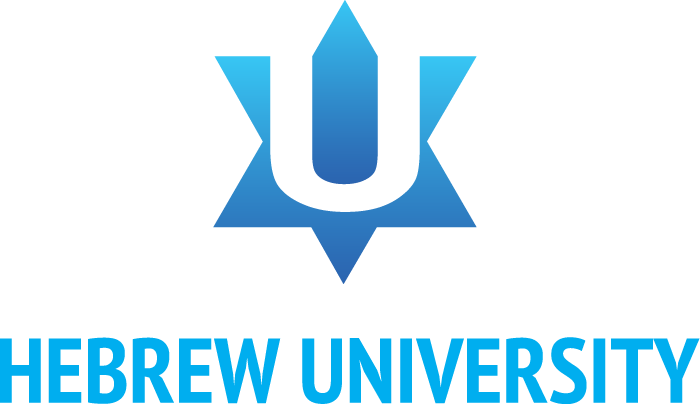
Drive the health services administration by earning a Ph.D. in health services administration. The program provides a high-level understanding of health policies, methods, and procedures for strategic improvement. Ph.D. in health services administration specializes in administrative theories and processes that relate to leadership roles in health service organizations.
The online program takes two years to complete. The program requires majors in health administration, public health, and business administration. Students applying for the Ph.D. program should have at least a masters’ degree in public health, business administration, or health administration. Ph.D. programs in health services administration require 60 credit hours, which included a dissertation project. The specific topic covered in the coursework for Ph.D. in health services administration include ethics for healthcare, health organization theory, health administration and policy, strategic management, and the history of health services administration.
In the online Ph.D. program, students will explore social justice principles that affect healthcare practice and decisions, and theoretical foundations of public policy and governance. Through the program, students will prepare to manage and implement healthcare services and programs by applying best practices in strategic planning, ethics, and leadership. Students will learn practical and collaborative approaches to working with diverse communities and workforces.
Pursuing a Ph.D. in health services administration online will provide students with a solid foundation in health administration and management practices and policies. The online program is provided through cloud-based virtual environments that give the student access to the technology needed for the course. The courses provided under the program offers 60 total credits hours. The minimum completion requirements for the program include 60 credits in fifteen courses. The courses include foundation courses, research courses, management courses, core courses, and dissertation.
Career & Outcomes

The online Ph.D. in health services administration prepares students to pursue a variety of health administration careers. The U.S. Bureau of Labor Statistics forecasts that the health administration and management industry anticipate a growth rate of 20% between 2016 and 2026. As the healthcare environment continues to transform, becoming more complex, the growth of knowledgeable administrators and leaders is inevitable. Health administrators’ salary, according to BLS, was $106,030 as of 2018. The hourly rate for health administrators is $48.79 per hour. The Ph.D. program will prepare students for careers in the health industry, particularly leadership and management positions. Graduates of the program will blend well with organizational business practices in the healthcare industry. At the end of the program, the students will have a firm understanding of health services administration.
Program Outline:
3 Credits
Course Description:
Healthcare financial management draws heavily from financial accounting, managerial accounting, finance, and economics. This course specifically focuses on learning and applying key financial and managerial accounting tools and concepts to healthcare problems. It provides a broad introduction to key concepts, issues, tools, and vocabulary useful both for policymakers and administrators. Topics include healthcare financial statements, recording transactions, financial statement analysis, full costing, differential costing, budgeting, and responsibility accounting. The course uses several cases and focuses on both analytics and communication skills. Although we will touch on these topics, a more robust discussion of healthcare financial management topics such as reimbursement, the time value of money, and financing the organization is found in other courses in the curriculum.
3 Credits
Course Description:
The overall purpose of this course is to introduce students to critical global health issues and ways to address or solve them. The curriculum focuses on the following global health topics: infectious and chronic diseases, maternal/child health, immigrant and refugee health, the relationship between political and cultural processes and health, and factors contributing to disparate health outcomes in population groups.
3 Credits
Course Description:
This course examines the technology in the healthcare organization and the bilateral relationship between managing the healthcare information systems and the patient. The student is expected to prepare executive summaries based on research done on the student’s selected topics, including integrate clinical, financial, and human resources data and to support managerial decision making.
3 Credits
Course Description:
Lecture, discussion, demonstrations, case analysis. Introduction to the basic principles of leadership and direction for those who are interested in the supervision and management of health programs. In addition, a personal assessment of personality type will be conducted. The discussion will cover how this self-knowledge can help in developing leadership capabilities.
3 Credits
Course Description:
This course prepares the students to generate strategic plans to overcome health services administration challenges with regulatory bodies and industry partners.
3 Credits
Course Description:
The course will cover Quality Improvement (QI), and it will consider the IOM’s perspective, then an organization’s current system is defined as how things are done now, whereas health care performance is defined by an organization’s efficiency and outcome of care, and level of patient satisfaction. Quality is directly linked to an organization’s service delivery approach or underlying systems of care. To achieve a different level of performance and improve quality, an organization’s current system needs to change.
3 Credits
Course Description:
This course-seminar covers the Health Policy in relationship with the future leaders in the Health Services Administration, and the student will need to identify, engage, and solve crises and emergencies. Crisis communication is needed somewhere within the health care field. Whenever a crisis occurs, communicators must be ready to provide information to help people make the best possible decisions for their health and well-being.
3 Credits
Course Description:
This course explains all major aspects of healthcare, including finance, organization, and reimbursement. The course examines principles, descriptions, and concrete examples into chapters that make important health policy issues interesting and understandable in the United States.
3 Credits
Course Description:
This course allows doctoral students to enhance his/her research methods to meet the benchmarks of the program projects and thesis.
3 Credits
Course Description:
This course offers a hands-on opportunity for doctoral and advanced masters students to experience the practice of qualitative research. We will address the nature of qualitative research in the administrative and policy on health sciences, with ample opportunities to discuss the implications of the choices made in designing, implementing, and reporting on the findings of a “mock” project, which we will determine in class, with your input.
3 Credits
Course Description:
This course provides the foundation in the relationship in conflict management with service providers and in-house professionals.
3 Credits
Course Description:
Designed for current or aspiring health care managers seeking to develop competencies in the business and scientific research environment. Protocol development and hypothesis testing are important components of the curriculum.
3 Credits
Course Description:
This course in the Health Care Management provides a framework for addressing management problems in healthcare organizations. We will discuss ideas, theories, and applications as part of the foundation of the Health Services Administration.
3 Credits
Course Description:
This course offers an overview of leadership perspectives and strategies as they apply to health care settings. Relates leadership to the processes of managing and developing human resources, complying with professional and governmental regulations, and monitoring policies and culture of the health care organization to maximize productivity, health, and job satisfaction.
3 Credits
Course Description:
This course provides methods to evaluate organizational performance and productivity using the advanced systems thinking platform and analyze internal and external resources and perform needs assessment; presents various models and methods for planning and positioning of health care services; surveys health services management information systems. It also emphasizes the importance of a marketing audit and incorporating that audit into the total strategic planning process.
15 Credits
Course Description:
This is the final program of the doctoral program. The prospective graduate needs approval from the instructor on the topic or the doctoral program and thesis.
Total Credits Hours
60
Disclaimer: Hebrew University and Jewish University System (JUS) reserve the right, because of changing conditions, to make modifications of any nature in academic programs and requirements of the university and its constituent colleges without advance notice. Students are advised to consult regularly with an academic advisor concerning their programs of study.


